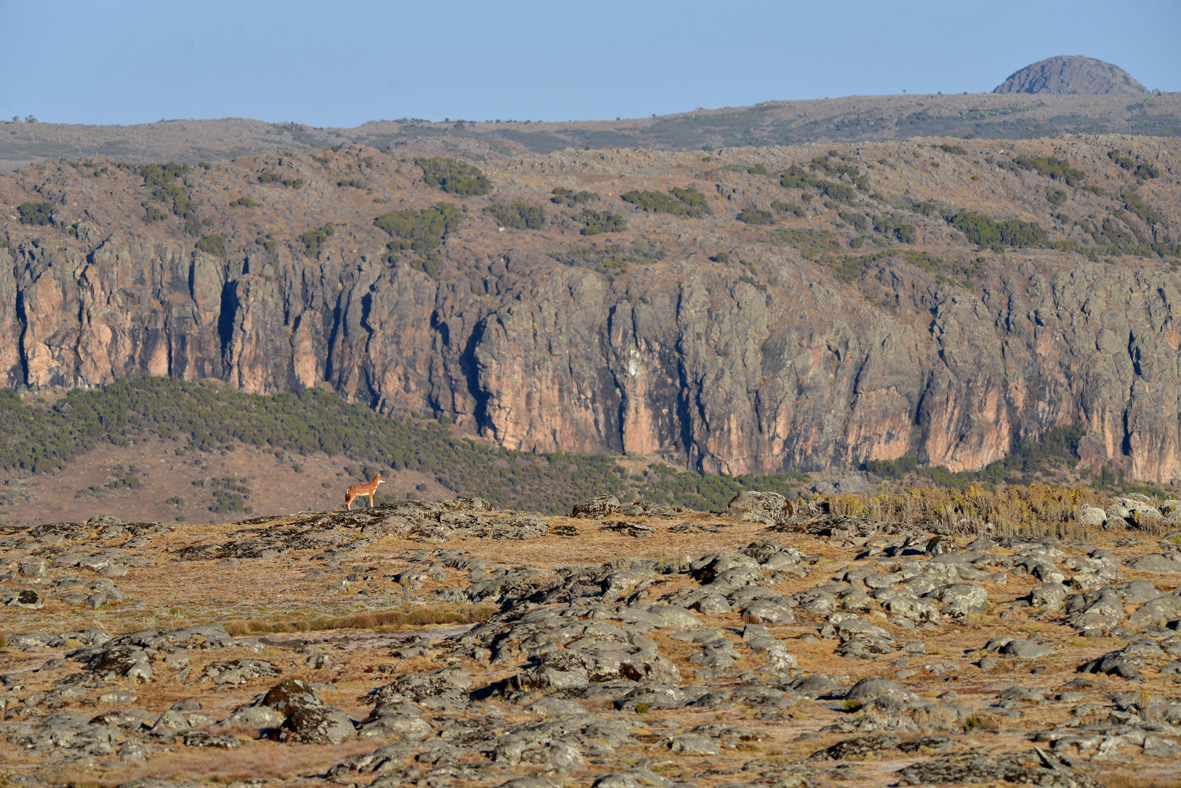

We are marking this World Rabies Day by celebrating a recent win for the wolves in the campaign against the disease.
Rabies has always been a huge threat to the wolves, able to rip through populations and devastate numbers. Late last year, in the Bale Mountains’ Web Valley, an alert came in from the settlement of Lencha. A young female Ethiopian wolf had been seen in close proximity to villagers’ homes, seemingly in very poor condition and displaying abnormal behaviour. This raised alarm bells for the staff at EWCP and the Bale Mountains National Park, who quickly rallied to the scene to assess the situation.
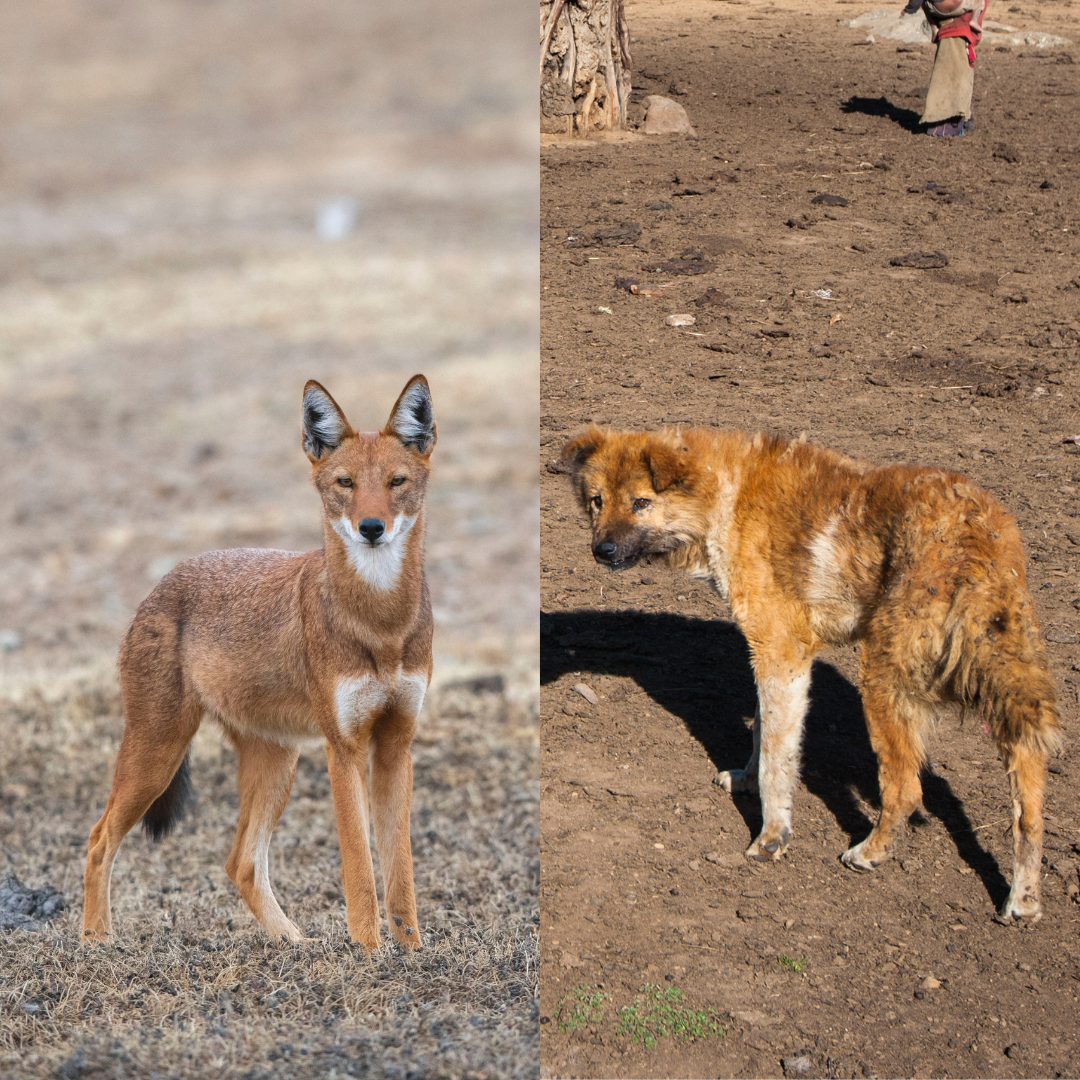
Many of you will be aware that habitat loss has confined Ethiopian wolves to the mountain tops, leaving small populations threatened by lethal viruses teetering on the edge of extinction. Fortunately for the wolves, we are out in force throughout their range, monitoring and vaccinating packs and working with communities to protect their unique habitats. Through many years of work, we have been able to pinpoint the key threats that need addressing, and identify new ones as they emerge.
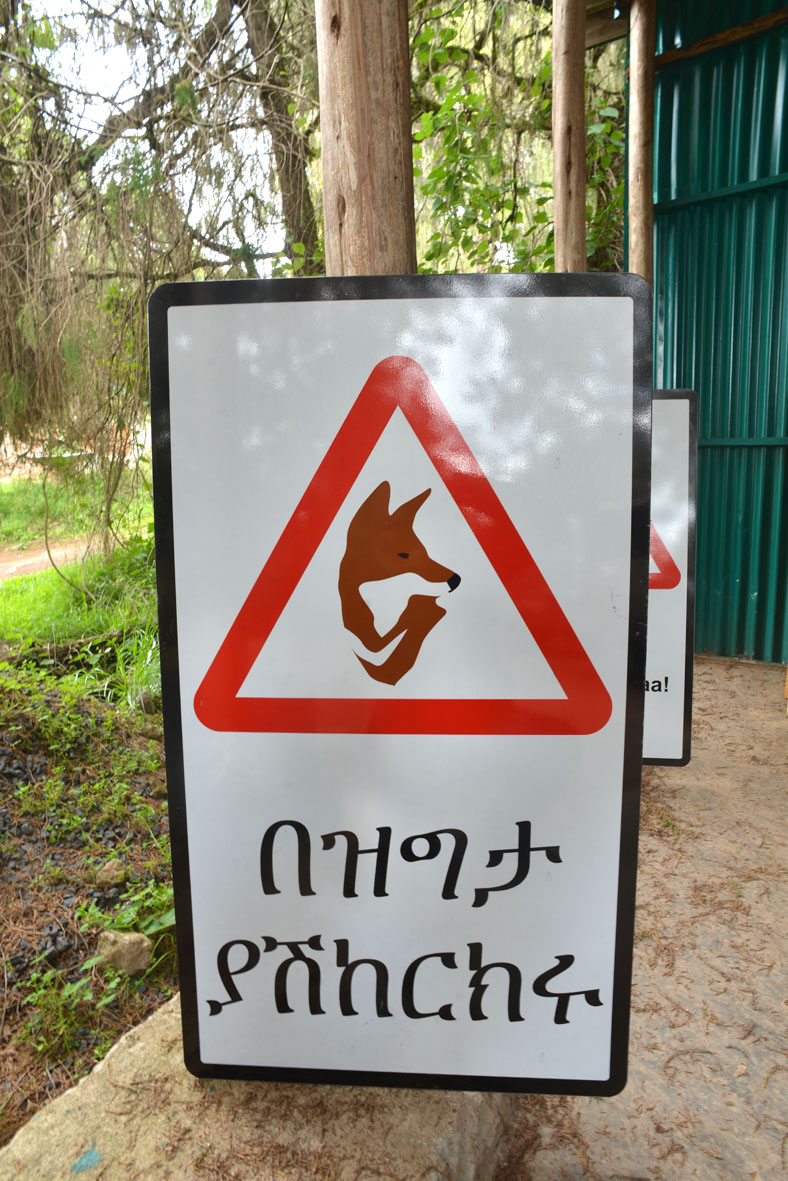
Health has been central to our work in Ethiopia for many years. In protecting Ethiopian wolves against diseases, we learn that success requires simultaneously addressing the health of wolves, of the local communities and their domestic animals, and of the mountain ecosystems that sustain them all.
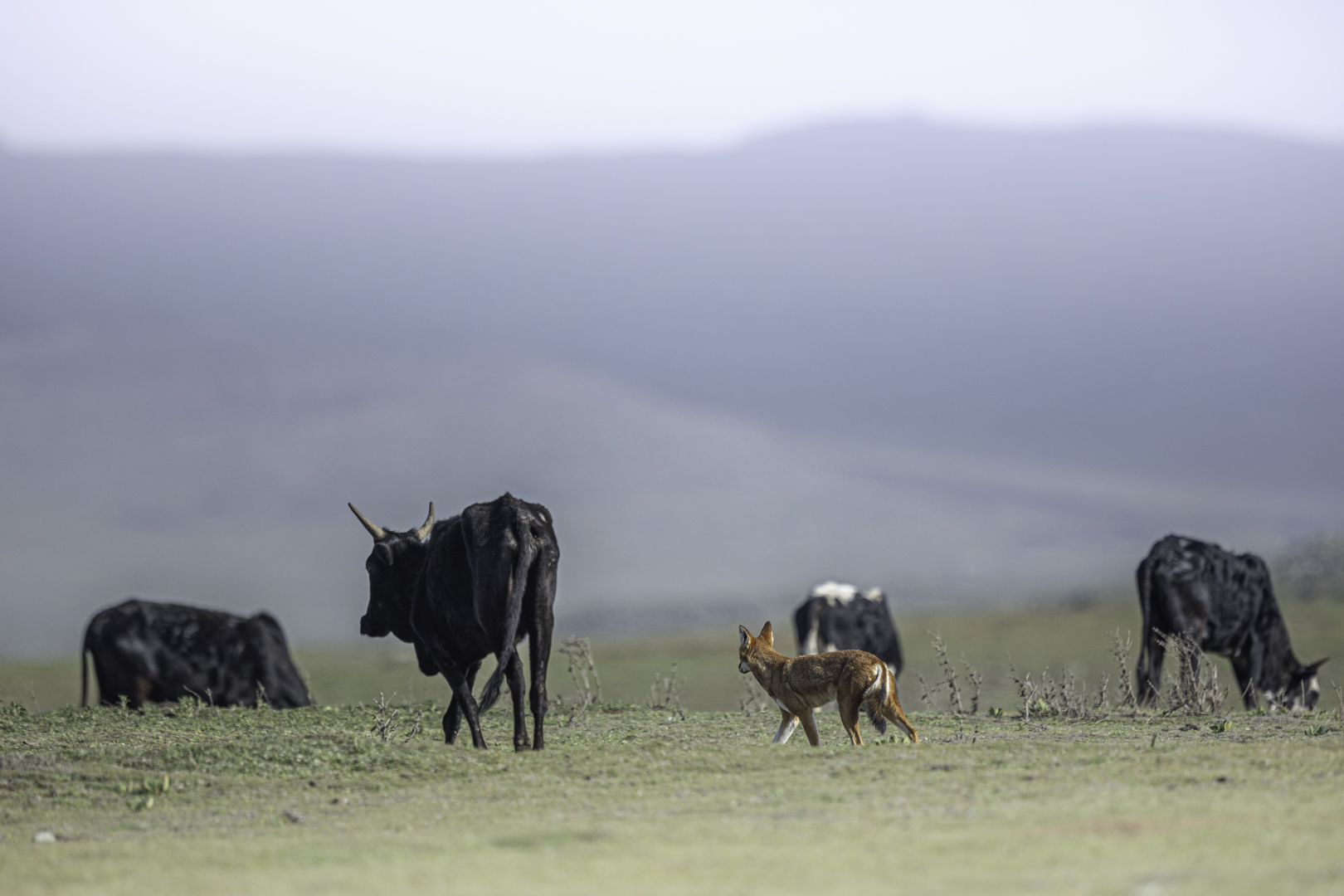
As Covid-19 continues and we all wait for a safe return to normal, the less obvious effects on wildlife become more of a concern.
Wildlife has been a major focus of conversations surrounding the pandemic, from its origins to its impacts and lessons for the future. We have seen some animals flourish where human activity has dwindled, while others have been less fortunate and may be at risk where tourism has vanished. Conservation action has of course also been affected, as a wide range of activities are no longer possible due to the risks of spreading infection. Our own work has been significantly disrupted in Ethiopia since April as a result of Covid-19.
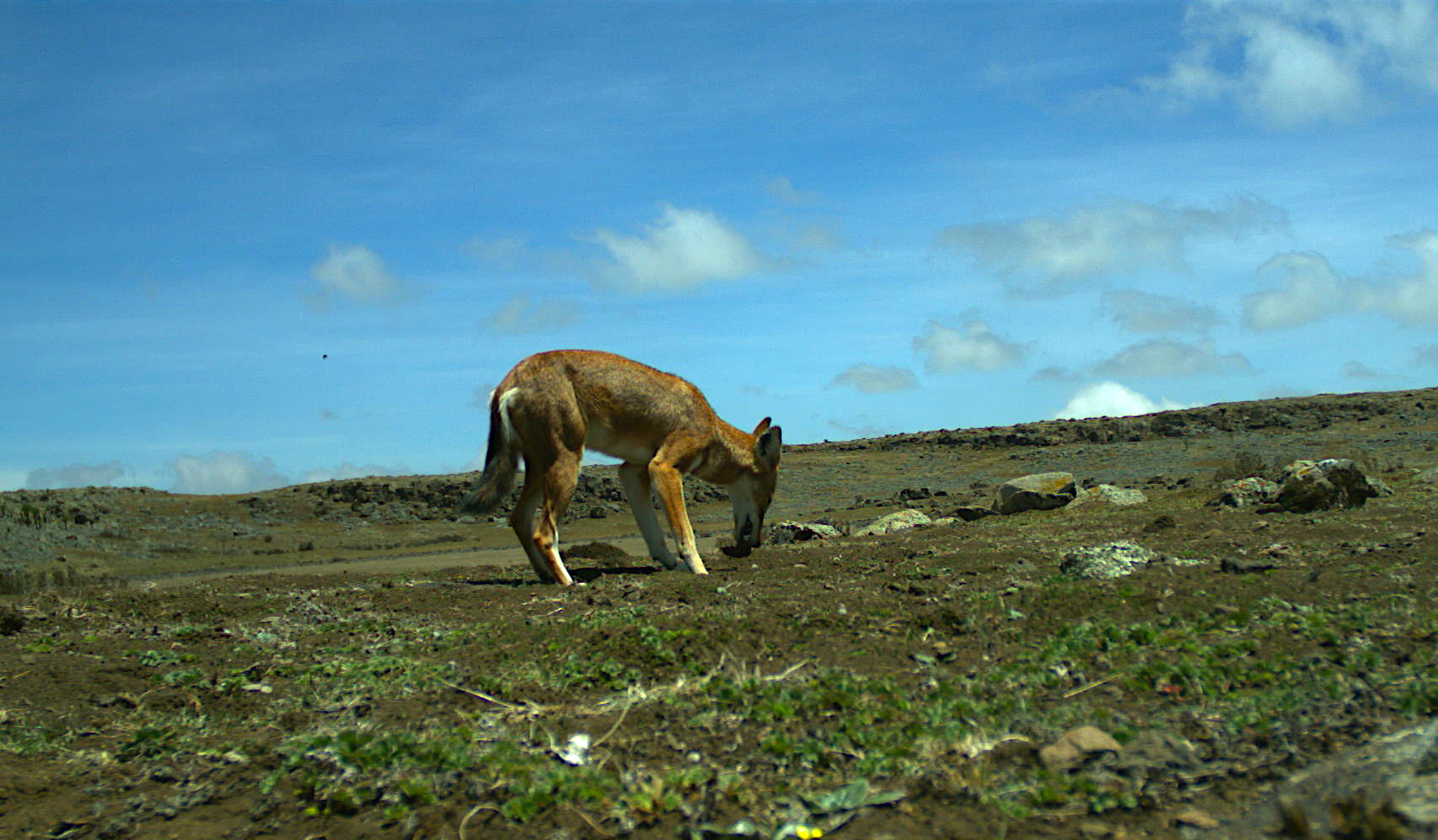
We are used to responding to large-scale threats to the wolves, like habitat loss and disease, but the acts of individuals can have a real impact, both good and bad. We have recently seen a worrying resurgence in behaviours that can threaten wolf survival.
